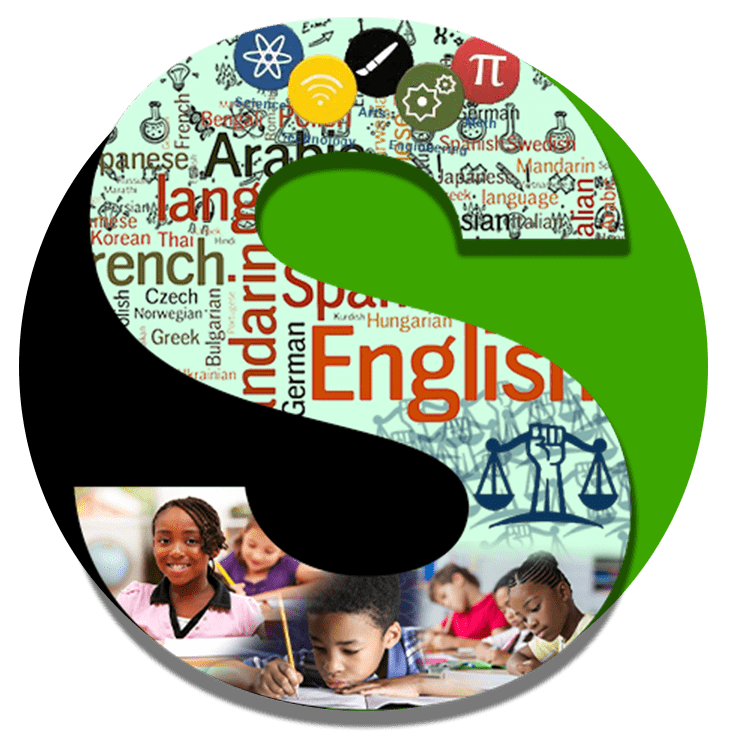Labeling children with special needs have been a long-standing practice in the educational system. However, after years of careful review this practice may have done more harm than good. By labeling children, we limit their potential and reinforce societal expectations that hinder their growth. Instead, it is crucial to recognize their unique learning styles and provide tailored education to meet their individual needs. We will look at the the negative implications of labeling, the importance of understanding different learning styles, and the benefits of shifting towards individualized education. By promoting equal opportunities for all children, we can unleash their full potential and create a more inclusive educational environment.
Understanding Different Learning Styles
*Research shows that each child possesses unique ways of processing information and acquiring knowledge. However, standardized education fails to accommodate diverse learning styles, focusing instead on a one-size-fits-all approach. By recognizing and embracing different learning styles, we can create an inclusive environment that maximizes the potential of all children. For example, some children may benefit from visual aids, while others may require hands-on activities. By tailoring educational strategies to cater to diverse learning styles, we can provide equal opportunities for all children, including those with special needs.
Negative Implications of Labeling
Labeling children with special needs has significant negative consequences. It often leads to stigmatization, lowered self-esteem, and limited educational opportunities. When a child is labeled, they may internalize this label, believing that they are fundamentally different from their peers. This can create a fixed mindset, where they feel confined by societal expectations and restricted from reaching their full potential. For example, a child diagnosed with autism may face discrimination and exclusion due to their label, hindering their educational and personal growth. By focusing on their differences rather than their abilities, we perpetuate inequality and deny them the chance to thrive.
Shifting Towards Individualized Education
An alternative approach to labeling children is to focus on individual education plans (IEPs) or personalized learning strategies. IEPs allow educators to identify each child’s strengths and weaknesses and develop tailored plans to address their specific needs. By acknowledging and accommodating diverse learning styles, we can foster an inclusive environment that promotes equal opportunities for all children. Research has shown that individualized education improves academic performance, self-esteem, and overall well-being. Case studies and exemplary educational programs have demonstrated the effectiveness of this approach in unleashing the potential of children with special needs and enabling them to succeed.
Embracing Strengths in Education
To foster a more inclusive and empowering education system, it is imperative that we break free from the conventional practice of labeling children. Instead, we should wholeheartedly embrace the task of nourishing and amplifying their strengths, refusing to fixate on their perceived weaknesses. An innovative approach lies in adopting individual education plans (IEPs) or personalized learning strategies. These strategies empower educators to unravel the unique talents and areas of improvement for each child, crafting personalized plans that cater to their distinct needs. By embracing diverse learning styles and fostering an inclusive environment, we can pave the way for equal opportunities that cultivate the potential of every child.
Extensive research supports the notion that tailored education focusing on strengths has significant positive outcomes. A study by Walberg and Greenberg (1997) found that personalized learning plans resulted in increased academic achievement and improved self-esteem among students. Furthermore, a meta-analysis conducted by Hattie and Timperley (2007) revealed that individualized instruction had a strong positive effect on overall student performance.
In addition to these research findings, numerous case studies and exemplary educational programs have further underscored the transformative impact of strength-based education. For instance, the High Tech High schools in California, renowned for their personalized learning approach, have consistently produced exceptional results for students across diverse backgrounds and abilities. Similarly, the inclusive practices implemented by the New Hampshire Department of Education have been praised for their ability to unlock the potential of children with special needs, enabling them to rise above preconceived limitations and achieve remarkable success.
These collective studies and initiatives unequivocally demonstrate that prioritizing the strengths of children through individualized education plans fuels their academic progress, enhances their self-confidence, and nurtures their overall well-being. With such robust evidence in favor of strength-based education, it becomes crucial for us to champion this approach and ensure that all children have equal access to tailored learning strategies that will unleash their full potential.
Overcoming Obstacles And Implementing Change
Overcoming the obstacles associated with transitioning away from labeling and embracing individualized education can be particularly challenging. One major hurdle lies in the system itself, which tends to uphold and perpetuate non-working methods, especially if they have gained approval from state and federal governmental systems. Consequently, the shift becomes an uphill battle due to the reluctance of the average person, including educators, to embrace change and accept pushback.
To successfully navigate these challenges, comprehensive efforts are needed. Firstly, teacher training programs must prioritize equipping educators with an in-depth understanding of diverse learning styles and effective personalized learning strategies. This will enable them to create tailored education plans that cater to the unique strengths and needs of each student.
Equally important are policy revisions that reshape the educational system to better meet the individualized needs of all children. By aligning policies with the principles of inclusivity and personalized learning, educational institutions can foster an inclusive learning environment that celebrates diversity and provides equal access to quality education for all.
In tandem with policy changes, increased awareness campaigns are also crucial in changing societal perceptions and eliminating the stigma associated with special needs. These campaigns can promote empathy, understanding, and acceptance, creating a more supportive and inclusive society at large.
Breaking the Mold: Dismantling the Damaging Practice of Labeling Children
The practice of labeling children with special needs has proven to be significantly detrimental rather than beneficial, with far-reaching negative consequences for their future. By affixing labels, we inadvertently confine children to prescribed categories, limiting their potential and subjecting them to societal biases and lowered expectations.
Labeling perpetuates a narrow perception of students, obscuring their individual strengths, talents, and capabilities. This, in turn, affects their self-esteem and self-worth, discouraging them from exploring their full potential. By pigeonholing children into preconceived notions of what they can or cannot achieve, we deny them the opportunity to defy those limitations, stifling their aspirations and progress.
Furthermore, labeling can create a self-fulfilling prophecy, as teachers and society at large may inadvertently treat labeled children differently, with lowered expectations and reduced opportunities compared to their peers. This systemic bias inhibits their access to equal educational resources and inhibits their growth and development.
The shift away from labeling necessitates concerted efforts to create a more inclusive educational environment. Rigorous teacher training programs are essential to equip educators with the knowledge and skills necessary to recognize and appreciate diverse learning styles. Implementing individualized education plans and personalized learning strategies allows us to provide tailored support, unlocking the full potential of each child and enabling them to flourish academically and personally.
Policy revisions are also crucial to create an educational system that promotes inclusivity and equal opportunities. By eliminating biased practices and incorporating principles of personalized education, we pave the way for a more equitable and empowering system that nurtures the talents and potential of all children, regardless of their differences.
To successfully transition away from labeling, we must also raise awareness and challenge societal perceptions. Promoting understanding, empathy, and acceptance will help eradicate the stigma associated with special needs and foster a culture that celebrates diversity.
It is imperative that we stop labeling children and, instead, empower them through education. By recognizing their unique strengths, providing individualized support, and cultivating an inclusive environment, we can unleash their untapped potential and pave the way for a brighter future. It is time to redefine our educational approach and create a system that prioritizes the growth, well-being, and success of all children, irrespective of their differences.
Dr. Aaron Lewis, January 29, 2024

